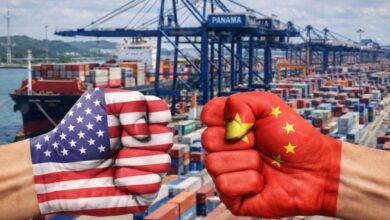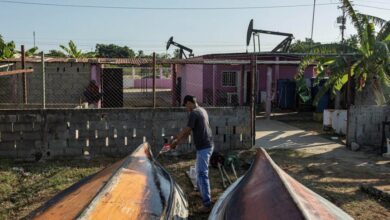Labor exploitation: the dark side of electric cars
Cobalt is a chemical necessary to produce rechargeable batteries, which in the Congo is extracted by adults in terrible conditions and even by children

Electric transport is essential to curb the effects of climate change. By 2040, the United Kingdom intends that the only cars on its streets be electric. Although Latin America takes shorter steps towards this implementation, countries such as Mexico, Ecuador, Peru, Brazil, Chile, and Argentina lead the process.
Leer en español: Explotación laboral: el lado oscuro de los autos eléctricos
However, the manufacture of electric cars is mired in a controversy of promotion of labor exploitation practices. According to an investigation carried out by Amnesty International and published in 2017, the increase in the extraction of cobalt (the primary mineral for the manufacture of batteries) has led both children and adults to carry out their work in conditions of risk and with miserable salaries.
50% of the cobalt in the world is concentrated In the Congo, and the extractions are produced in the same amount. Despite its mining wealth, the Democratic Republic of the Congo is one of the poorest countries on the planet, and the absence of jobs forces a large part of the population to carry out mining activities informally.
According to Unicef estimates, at least 40,000 children are involved in the extraction of cobalt. Many of these are just seven years old, they work for 12 continuous hours underground in unhealthy conditions, breathing toxic chemicals that can generate terminal illnesses, all for between one and two dollars a day.
From Africa to our hands
The aim is to extract as much cobalt as possible to sell to Congo Dongfang Mining (CDM), a wholly-owned subsidiary of Chinese minerals trading giant Zhejiang Huayou Cobalt Ltd (Huayou Cobalt). Amnesty International was able to observe in its investigation that the majority of the cobalt obtained by CDM was sold in turn to battery manufacturers, who supply technological and automotive giants, such as Apple, Samsung, HP, Huawei, Microsoft, Sony, Daimler, and Volkswagen.
It is paradoxical that the mineral that has enriched many of these companies comes from the poorest areas of the Earth, where the fundamental material to manufacture rechargeable ion batteries is paid for almost nothing and victims of child labor exploitation suffer the consequences of the industry's demand.
A solution?
Eliminating cobalt from electric car batteries, or suspending mass production of this environmental alternative, is not the solution to the problem of labor exploitation in Africa. The balance lies in the responsibility of the companies when they meet and establish their supply chains. Although it seems urgent to implement electric vehicles, the environmental commitment extends to all ramifications, beginning with ensuring that the miners of their raw materials work in safe conditions and receive fair payments for their work.
Apple has been one of the first technology companies to review the production chain of its battery suppliers, but so far electric car manufacturers seem to be ignoring their involvement in the problem, leaving this responsibility only in the hands of the manufacturers of the batteries
Latin American Post | Krishna Jaramillo
Copy edited by Laura Rocha Rueda





